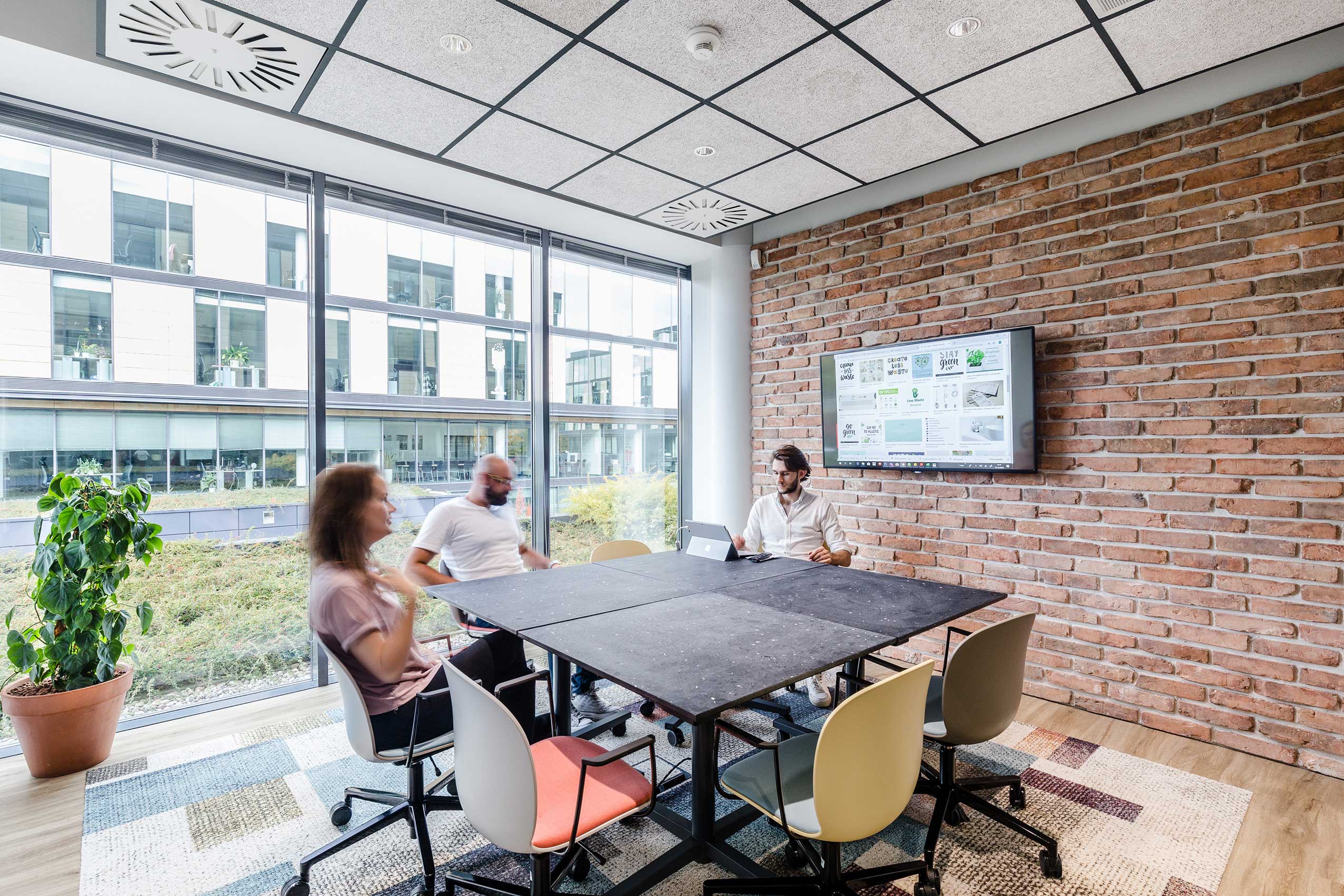Nordea's ‘Less Waste Office’ in the city of Gdynia is the result of several year’s research and planning by Polish architects Workplace Solutions, designers looking to challenge the architecture industry to find more sustainable solutions to workplace design.
Standard office spaces have a 5-10 year life cycle, with most furnishings and equipment becoming waste during this time frame, needing replacement. According to the US Environmental Protection Agency, this process sees 8.5 million tonnes of office assets filling up landfill sites annually, in the US alone.
Their solution to this was to source recycled and recyclable materials and equipment as much as possible, in almost every area of the project, a method that took nearly two years of hard work. In Nordea, the architects found a natural partner to work with on this project, a company equally committed to environmental action, willing to accept the risks of this unique challenge.
80% of the workplace is composed of recycled and ecological materials. Almost all the electrical and ventilation was refurbished and reinstalled. The team sourced furniture, lamps and decorative elements from second-hand merchants and refurbished. Recycled bricks, eco paints, biodegradable foils, and natural cork insulation boards also feature throughout.
For the other 20%, where new products were the only option, every effort was made to find recycled and recyclable solutions. Flokk brand Profim provided a range of conference and cafeteria seating with the Profim Noor. Made using recycled metals and fully recyclable plastics, these chairs not only offer comfort and support but also are long-lasting and fully recyclable, with minimal chance of ending up in a landfill.
In the near future, they will also be made using even more recycled materials. These were complemented by tabletops made of recycled plastic packaging and carpets made without harmful bituminous primers.

/Case%20Study/flokk-interior-nordea-profim-noor_07.jpg)
/Case%20Study/flokk-interior-nordea-profim-noor_04.jpg)
/Case%20Study/flokk-interior-nordea-profim-noor_12.jpg)
/Case%20Study/flokk-interior-nordea-profim-noor_11.jpg)
/Case%20Study/flokk-interior-nordea-profim-noor_08.jpg)
/Case%20Study/flokk-interior-nordea-profim-noor_05.jpg)
/Case%20Study/flokk-interior-nordea-profim-noor_09.jpg)